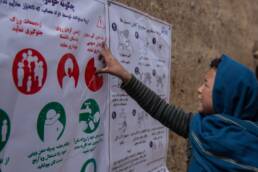
Cordaid | The world is going through a strange time. A time that forces us to be careful at every step. Because what we do now, will have a significant influence on the future. Therefore, Cordaid and Clingendael were jointly hosting a series of webinars to help the Netherlands with its decision-making process related to global health. The aim was to bring experts from different sectors together (e.g. ministries, health organizations, universities and international development) and find an integrated and sustainable way out of the current and future health crises.
A few highlights:
- Currently, most countries in Europe are taking measures within their borders. But measures driven by solidarity, and international cooperation and exchange would have been more efficient. For example, a response at the European Union level from the beginning would have been much more efficient in tackling the crisis in Europe. Similarly, we are also globally connected – especially when it comes to our health and wellbeing, economy, and law and order. Therefore, the need for a unified, global response is getting stronger.
- A health system is as strong as its weakest link and situations are not the same worldwide when it comes to fighting this virus. When the Netherlands is talking about not exceeding existing ICU capacity, countries like Zimbabwe and Ethiopia are discussing the possibility of setting up isolation and treatment centres, IC units, and purchasing equipment for the basic healthcare set-up like ambulances and hospital beds. Many low-income countries by no means have the ability to do this all by themselves. And the whole world remains vulnerable until every place has strong health systems.
- Reliable, timely data on national health are key to assess problems and provide support. There is also a massive gap in health data sharing from low-income countries because of the scarcity of e.g. medical professionals, adequate equipment, surveillance and other necessary systems. Honest data sharing can also backfire, as low-performing countries might be forced to face extra restrictions or will be ostracized as a result.
- A multilateral organization like the World Health Organization can step in to solve some of these issues. It can bring nations together for a global approach and ensure that help is provided to countries that need it most. It can also find a diplomatic way to encourage countries to share health data and ensure that the data is interpreted within contexts. To reach this solution and to enable the WHO to perform this role, the WHO needs to be strongly supported by countries to increase its capacity and mandates.
………………..
Source: Cordaid news, 18 June 2020
Read more: Cordaid website
Photo: Information on the prevention of COVID-19 in Afghanistan. Image by Stefanie Glinski for Catholic Relief Services, via Cordaid website
